  |
| A self explanatory part from the "NEWBORN" sign in Pristina. And Peja of course |
 |
| In Prizren |
Kosovo is
not on anyone’s bucket list! There is very little known about the country and I was
not an exception to the rule.
It is the youngest country in Europe, born in 2008 after proclaiming independence from Serbia. Serbia rejected this declaration. Countries including the US, Japan, Australia, NZ and most of the European Union sided with Kosovo, acknowledging its independence; many countries, including China and Russia, did not.
With about
93%-96% of Kosovo Albanians in the country (depends on the source of information), it has
almost nothing to do with Serbia in my opinion. I recommend to anyone going to Kosovo, to spend some time with locals (both Kosovo Albanians and Kosovo Serbs). You might hear different versions of the same story but that is normal for such a conflict zone. I am not saying that what you are going to hear is nice or a fairy tail like. Actually quite the opposite, it is mind boggling. But it is the reality and it happened in Europe, not long ago taking much more victims that any other terrorist attack today.
To this day, Serbia considers Kosovo to be part of Serbia — and that causes implications for travellers. The map I got in Serbia was useful for me in Kosovo too as it included Kosovo as a territory. If you enter Kosovo via an international border, as I did from Montenegro, you can’t exit through a non-Kosovo Serbian border. If you do so, Serbia will declare that you entered Serbia illegally.
If you plan to visit both Serbia and Kosovo, I recommend to do either: 1) Travel to Kosovo from Serbia (there is no border crossing between Serbia and Kosovo), then go back to Serbia and exit Serbia. 2) Arrive in Serbia, travel to Kosovo, and exit via Kosovo.
Or... 3) If you travel on a EU passport and have a national ID, don’t use your passport but your country’s ID because they can’t see any stamp. It is what I did. I had my passport with me but travelled the whole Balkans using my Bulgarian ID (I tend to run out of passport pages in places where is no Bulgarian embassy within 1000 km radius so I am careful now).
 |
| Pristina main pedestrian street |
 |
| Near the bus station.Looks like the painters had enough and left |
I entered
Kosovo from Montenegro, coming from Rozaje. The border crossing post in
Montenegro is miles away from the one in Kosovo so if you are hitchhiking, make
sure you get a ride in Montenegro if you don’t have one already, do not cross the border on foot. It’s enough just to ask
any of the track drivers heading that way. It is a narrow mountainous road
mostly in poor condition, climbing towards the border and then descending into
Kosovo to the town of Pec (Peje). I didn’t stay long in Pec and headed
to Pristina.
My first half an hour in
Pristina took me by surprise – I didn’t expect to see such a big main pedestrian
street full of life. Literally, I thought that the whole city was out there
eating and drinking. And unlike the many ageing European societies, Kosovo has
something that you notice straight away- its young people. I am not sure if it
was because it was summer but I could see them everywhere, had the feeling the
nobody works in Pristina - every single café
or restaurant was packed. What everyone was telling me was that Kosovo is not a Muslim country. Three religions – Islam, Orthodoxy, and Catholicism, have long coexisted in Kosovo. Kosovo Albanians do not define their national identity through religion, but through language and have a relatively relaxed approach towards the Islamic religion.
Pristina
 English is widely spoken in the 3 square
kilometre space in the centre of town where internationals and those working
for international organizations predominate; the further you go from the
centre, the less likely you will be to find English widely spoken. Navigating
around the city is easy - the city centre is small and walkable
English is widely spoken in the 3 square
kilometre space in the centre of town where internationals and those working
for international organizations predominate; the further you go from the
centre, the less likely you will be to find English widely spoken. Navigating
around the city is easy - the city centre is small and walkable. By the way no running water between midnight and 6am.
It is not a beautiful city but I liked it. I think I was more surprised than anything else by how full of life the city was. And wanted to hear more about Kosovo and their life from my host on Couchsurfing Florim. He took me out for dinner (it costs you the same if you cook at home or eat in a restaurant) and the food was really good and ridiculously cheap. Had dinner at 10 pm and then went to a bar and leaving at around 12,30 all the restaurants were still full and so were the bars. On Monday night! Albanians. Blond, dark, any.
 |
| My first meal in Kosovo. Loved the cheese |
 |
| One of not that nice streets in Pristina, close to the market |
 |
| Albanian flags are on display everywhere |
Albanian pride is on
display everywhere, the double-headed eagle on a blood-red background filling
signs and banners in the streets. Most of the Kosovars I spoke to, still
consider themselves Kosovo Albanians but as they say in the next few years that
will slowly change and The Kosovo identity will be more distinguished.
 |
| Still missing! |
  |
| The cheapest ice-cream ever (prices in €)! Everything is actually ridiculously cheap in Kosovo |
  |
| The typical for the Balkans death notices and "Do not park on the sidewalk" sign |
They didn’t have money for food, no work, it was forbidden
to go to school, the Serbs closed all the Albanian high schools and
universities so they created their own school system in private houses
and it was recognised in Europe after the war. They all made it through thanks to the money their
relatives living in Switzerland, Germany, USA or wherever they fled to, sent home. It is
incredible: 2 million Kosovars live in the country and 1 million abroad.
I saw so many cars with Swiss and German
registration plates that it was ridiculous. All coming backs to their homeland
in the summer. There
were six Kosovar players only in the Swiss national team at the World cup in 2014!


PRIZREN
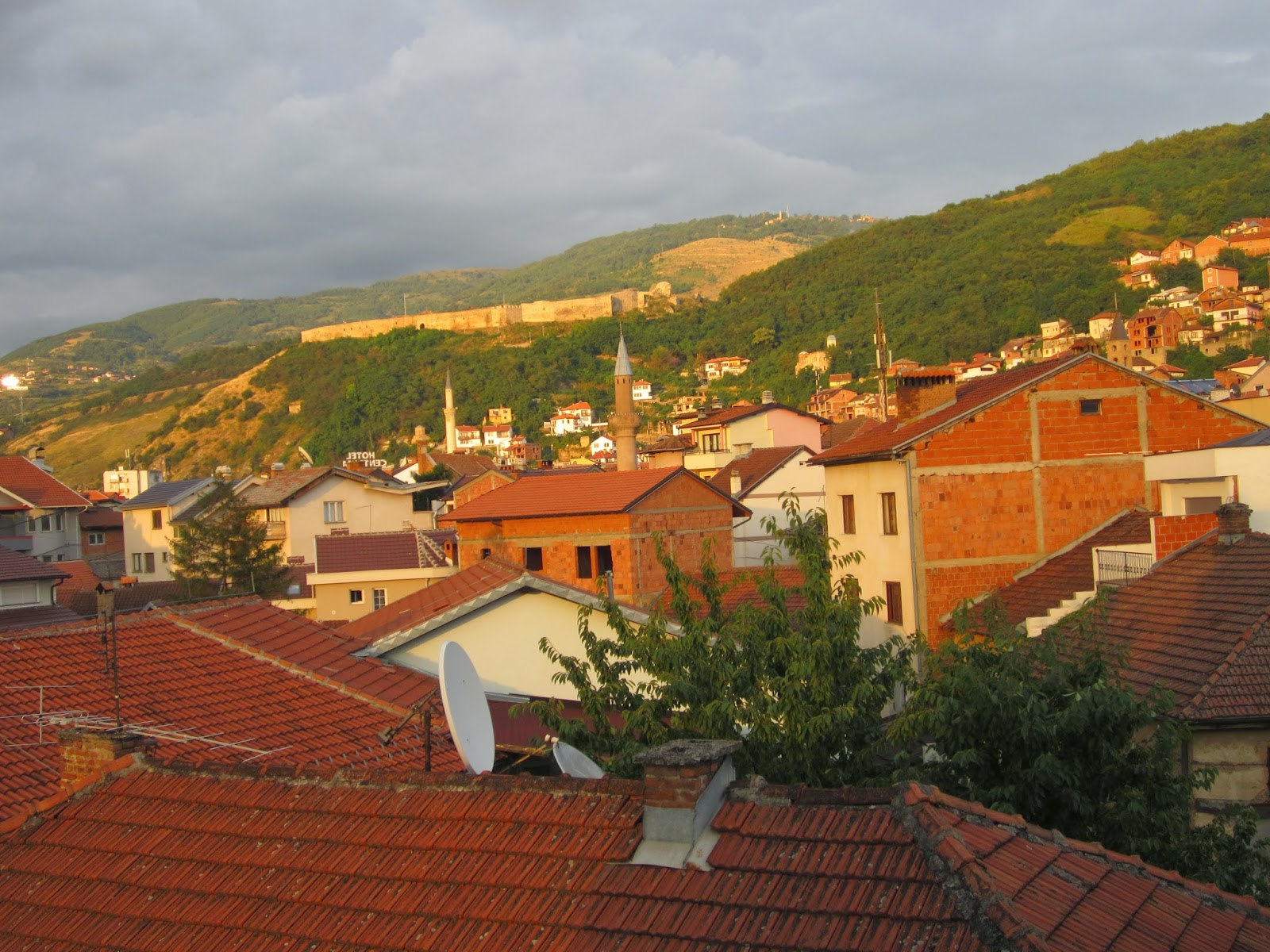 |
| The view from my room in Prizren City Hostel |
Stayed in Prizren City Hostel, the only hostel in town (summer 2014). Great vibe and excellent staff. Free
breakfast, coffee and tea at any time, and free beer at night.I call Prizren "a little Sarajevo". Same pretty old houses left from the Ottoman empire, same cobbled streets winding around Shadervan square and its cozy little cafes, the river and its stone bridges, the fortress..it all made me want to stay longer.
I also met up with Valdrim from Couchsurfing who had a degree in Political Science and was the perfect guide for someone like me who always have questions. He told me a lot about the war and how they lived before that. Valdrim wrote lots of articles himself for a national newspaper and abroad, but got tired and fed up with the response he got. At least he was happy to talk about it and didn´t mind all my questions. He took me to the historic museum Kompleksi Monumental I
Lidhjes Shqiptare Te Prizrenit where I was given a real lesson about the history of Kosovo. We also went to a "tekke" - a prayer room where the dervishes gather to practice Sufism. The Sufi order religious leadership is family-based, with sons inherited the 'spiritual power' of the father.Dervishes claim to communicate with the devine through a sheh, the spiritual leader of the community, and perform a specific ritual called ziker.
 |
| The fortress in Prizren |
 |
| Prizren |


  |
| But not all buildings in Prizren are that well preserved |
Electric wire swinging everywhere in Prizren




  |
| The fortress |
 |
| 400-year-old Sinan Pasha mosque |
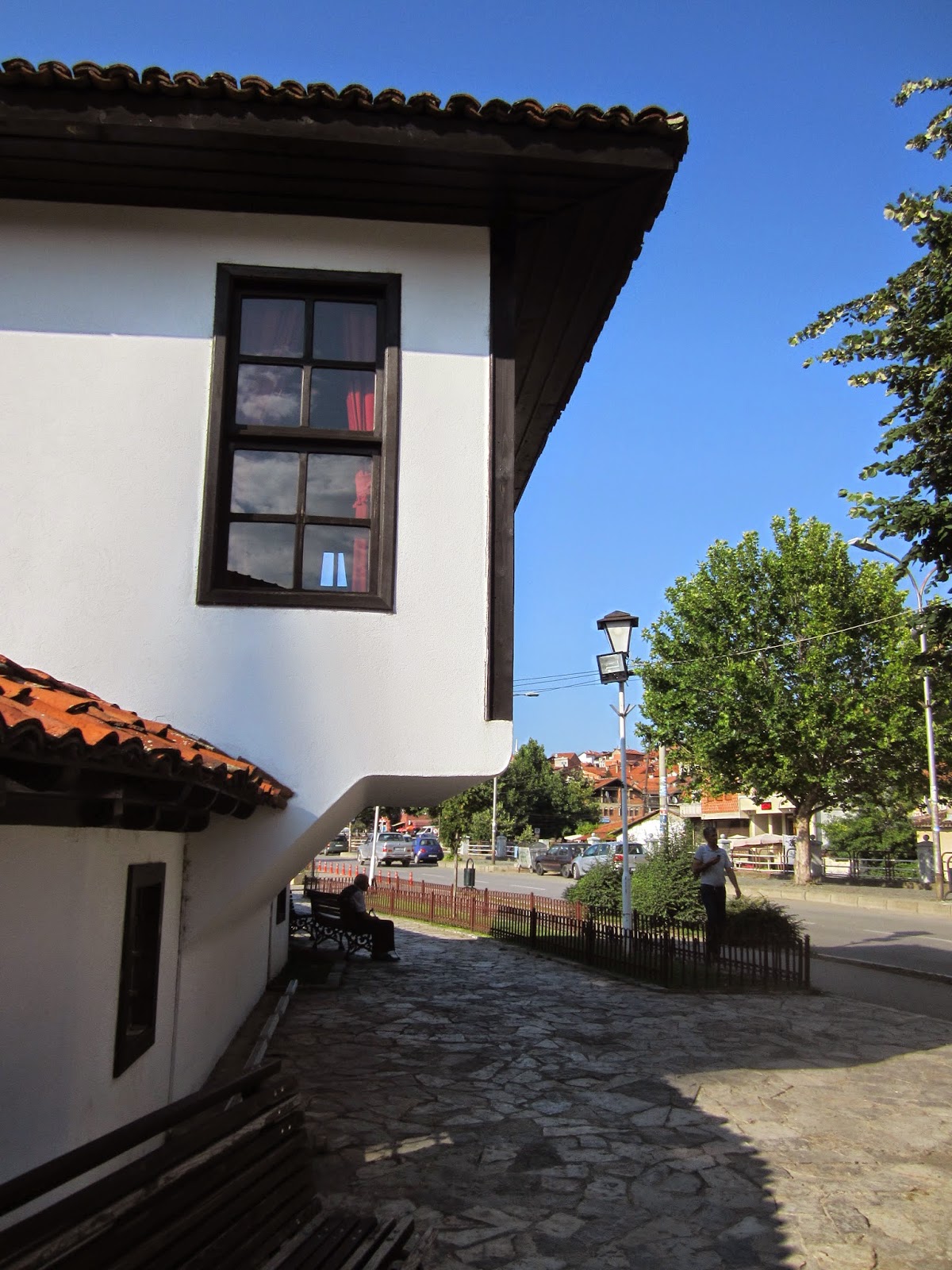  |
| League of Prizren building (history museum) |
  |
| In the house of the sheh (the spiritual leader of the dervish community); he is the one on the right |
  |
| Like in mosques, shoes need to be removed before entering a "tekke" |
 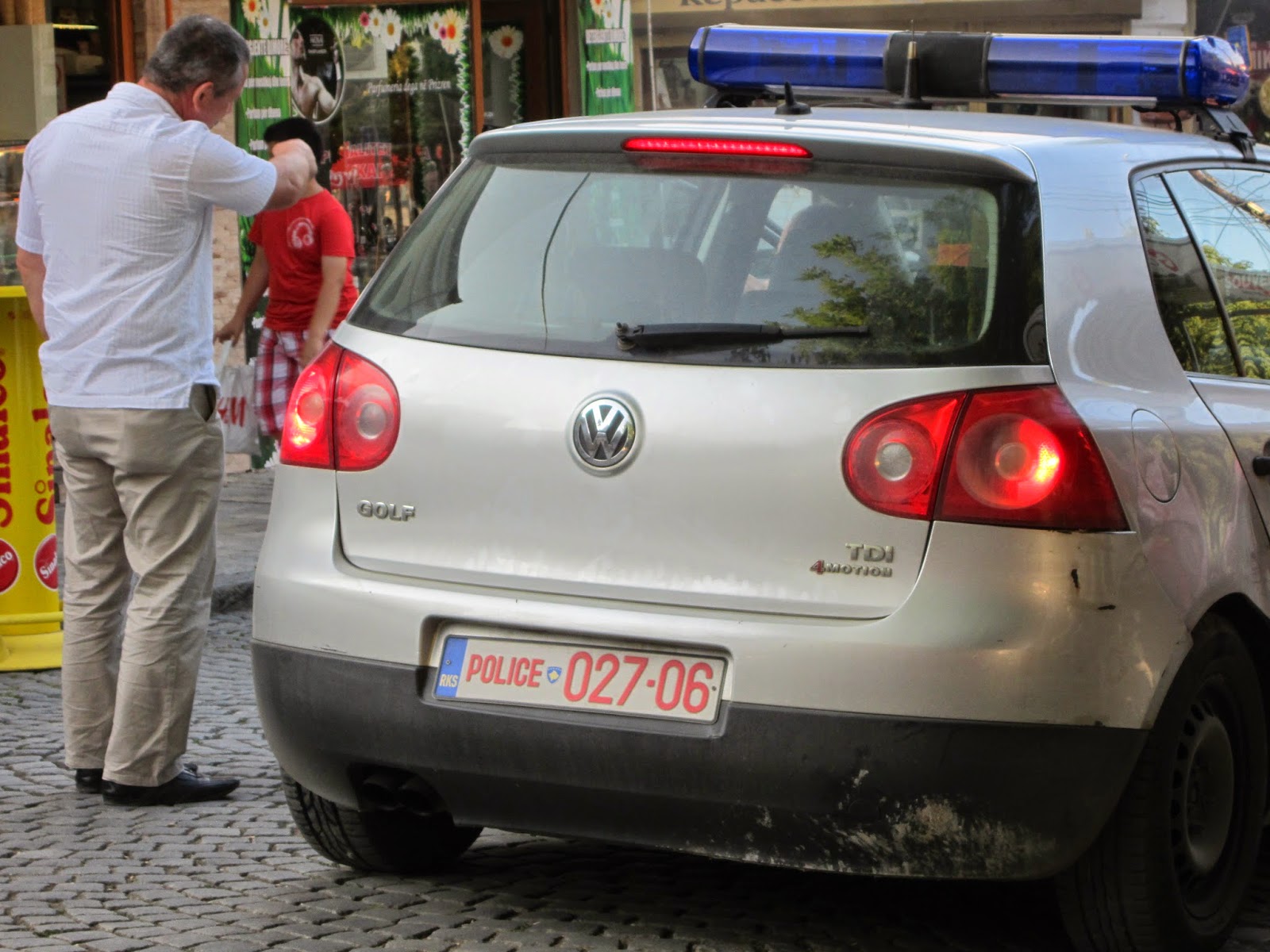 |
| Some traditional costumes Prizren Police car |
  |
| Cebapcici / tulumba |
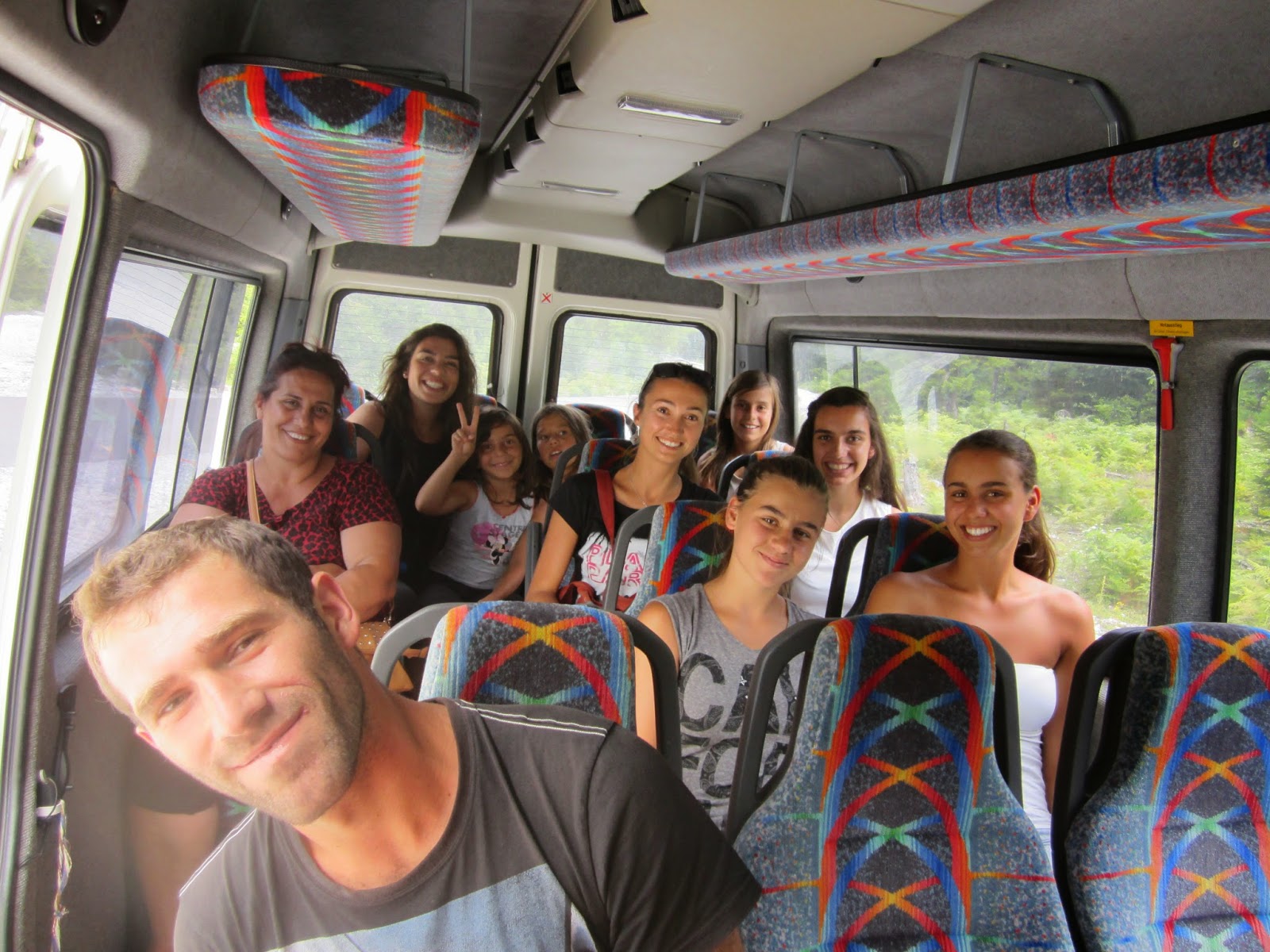 |
| The family who picked me up |
After being so warmly welcomed by everybody I met, the best of Kosovo lies in getting to know the people. And I hope I come back and have the same the experience again. maybe for the Film festival in August.
The next stop of my Balkan route
was the mountains of Albania. I hitch hiked to Albania via Gjakova and made it to Valdova. A whole family
of 14 picked me up (Kosovars from Gjakova living in Switzerland) for the last
section of 10 km in the mountain.





 English is widely spoken in the 3 square
kilometre space in the centre of town where internationals and those working
for international organizations predominate; the further you go from the
centre, the less likely you will be to find English widely spoken. Navigating
around the city is easy - the city centre is small and walkable. By the way no running water between midnight and 6am.
English is widely spoken in the 3 square
kilometre space in the centre of town where internationals and those working
for international organizations predominate; the further you go from the
centre, the less likely you will be to find English widely spoken. Navigating
around the city is easy - the city centre is small and walkable. By the way no running water between midnight and 6am.

















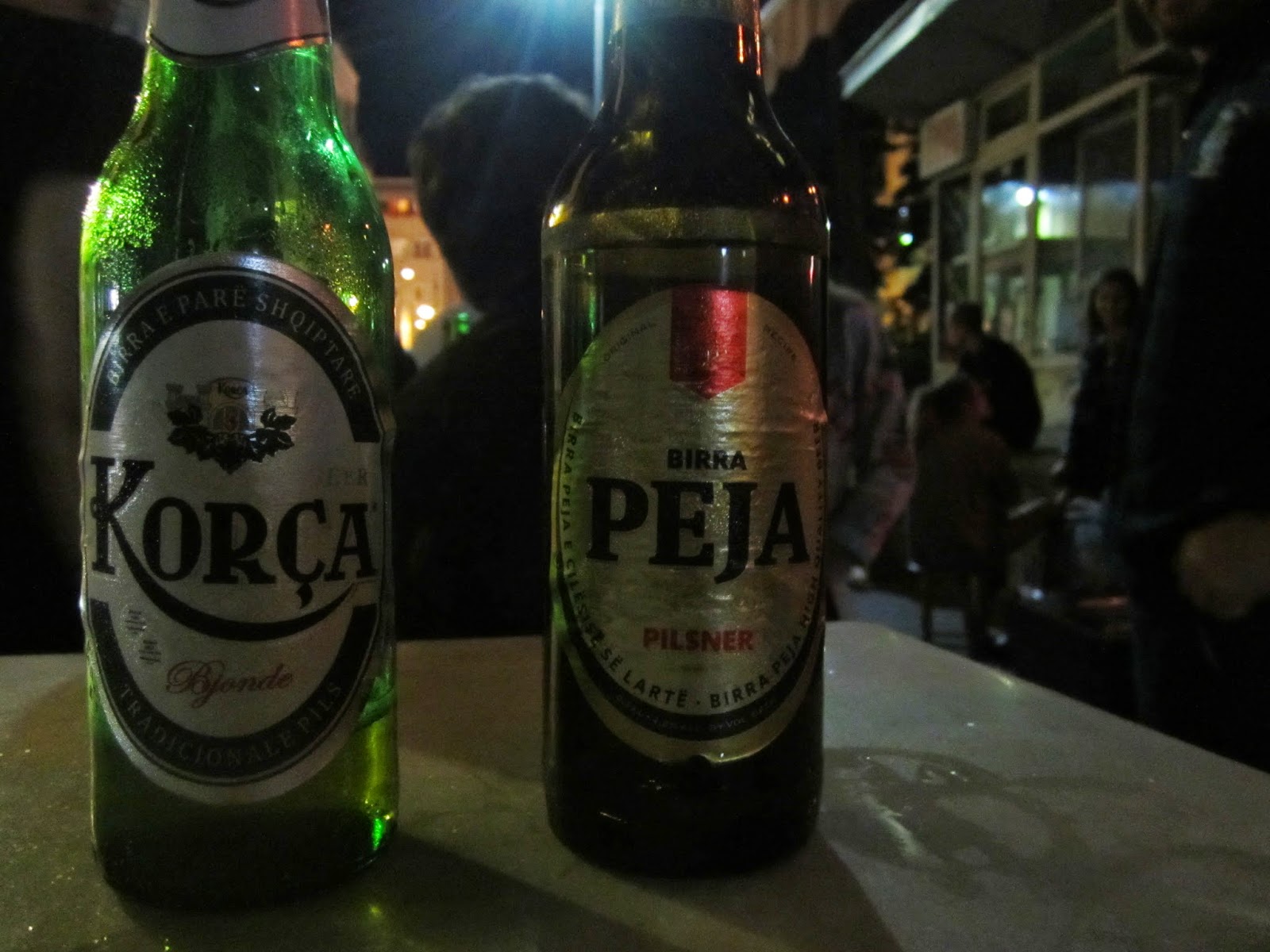
































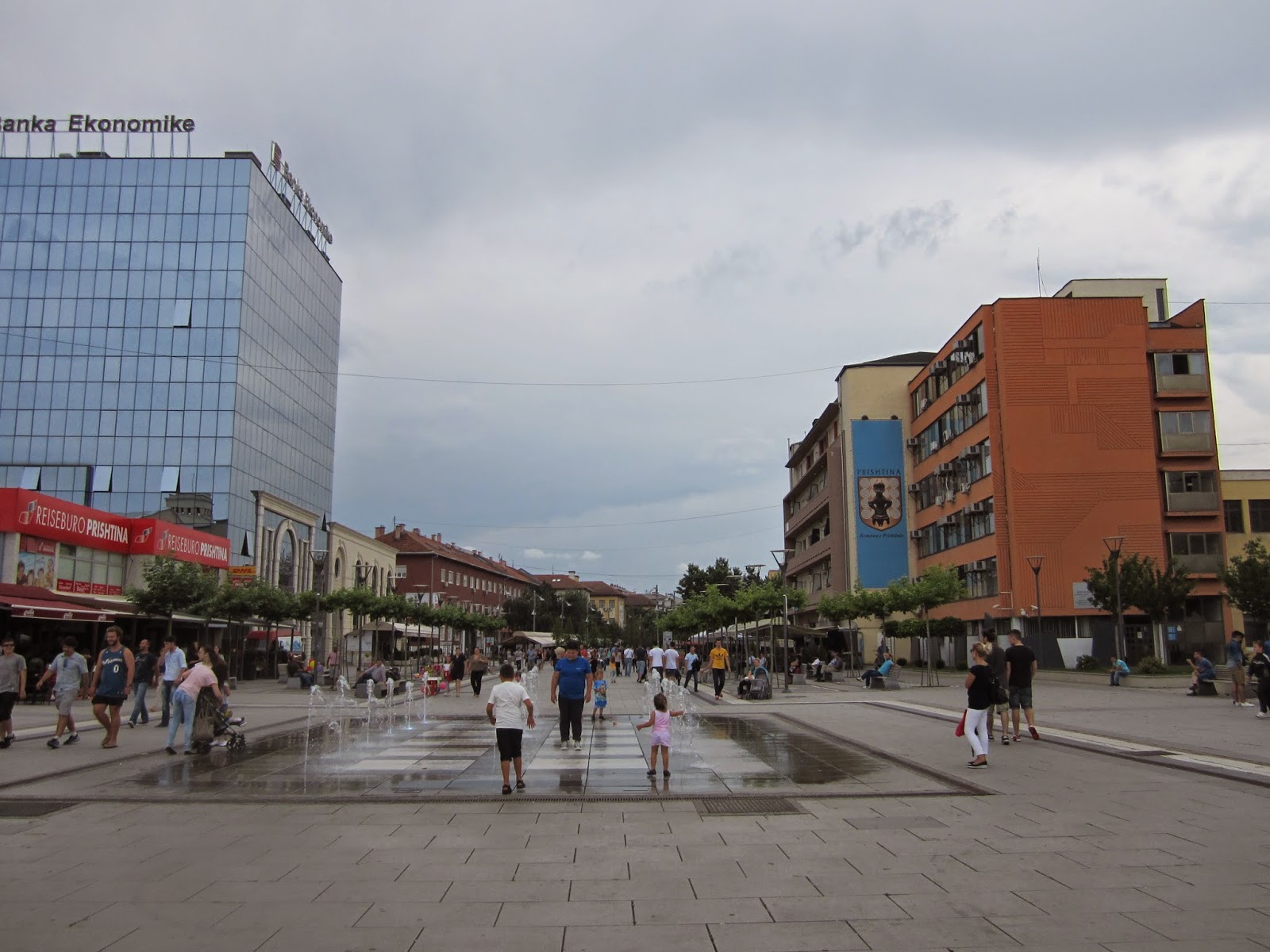



Lastly, a country i would love to visit, thanks for reminding me to add it in my queue list.
ReplyDeletecheap airport parking
manchester airport parking deals